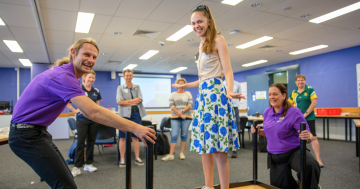 Almost half of regional and remote mature-age university students are considering deferring or withdrawing, citing a lack of university support, a new report has found.
Almost half of regional and remote mature-age university students are considering deferring or withdrawing, citing a lack of university support, a new report has found.
The Report, On The Radar: Supporting the Mental Wellbeing of Mature-Aged Students in Regional and Remote Australia (2019/20 NCSEHE Equity Fellowship Final Report), produced by the National Centre of Student Equity in Higher Education based at Curtin University, found most regional and remote mature-age students studied online at home, at their local library or with a Regional University Centre.
It described several challenges faced by over-21s, who lived in regional areas and represented about 12 per cent of the national domestic student undergraduate population, which included issues such as stress or feeling overwhelmed by their study load.
The Report’s author, Nicole Crawford, said she was shocked and saddened by the results.
“It’s deeply concerning,” Dr Crawford said.
“It shows that a lot of this cohort struggle with juggling the demands of their university studies with parenting, work and community responsibilities.”
She said several factors impacted the mental wellbeing of these students, including their interactions with their university course, curriculum, peers and tutors, as well as factors outside of university, such as financial challenges and accessing the internet.
“Another concerning finding was that nearly a third of the participants didn’t have a fellow student or staff member at the university they could turn to for support,” Dr Crawford said.
“I interviewed one online student who just struggled in every way imaginable,” she said.
“She would be doing an exam online at home and her internet would cut out.
“She also had no idea how to write an academic essay and she didn’t know where to find academic learning support.”
Dr Crawford’s Report included recommendations on how universities could enhance their students’ wellbeing and academic success.
“One recommendation is for universities to implement Universal Design for Learning practices, to ensure course design, curriculum and assessment deadlines cater for all students, not just those who can attend campus and have no obstacles to their learning.”
Dr Crawford said a second recommendation was for greater flexibility in assessment deadlines.
“I’ve talked with students who have been unable to submit an assessment by the due date because they’ve had a baby, their roster changed or they had been impacted by a large bushfire,” she said.
“They weren’t granted an extension because their reasons weren’t written in the rules,” Dr Crawford said.
The full 113-page Report can be accessed at this PS News link.









